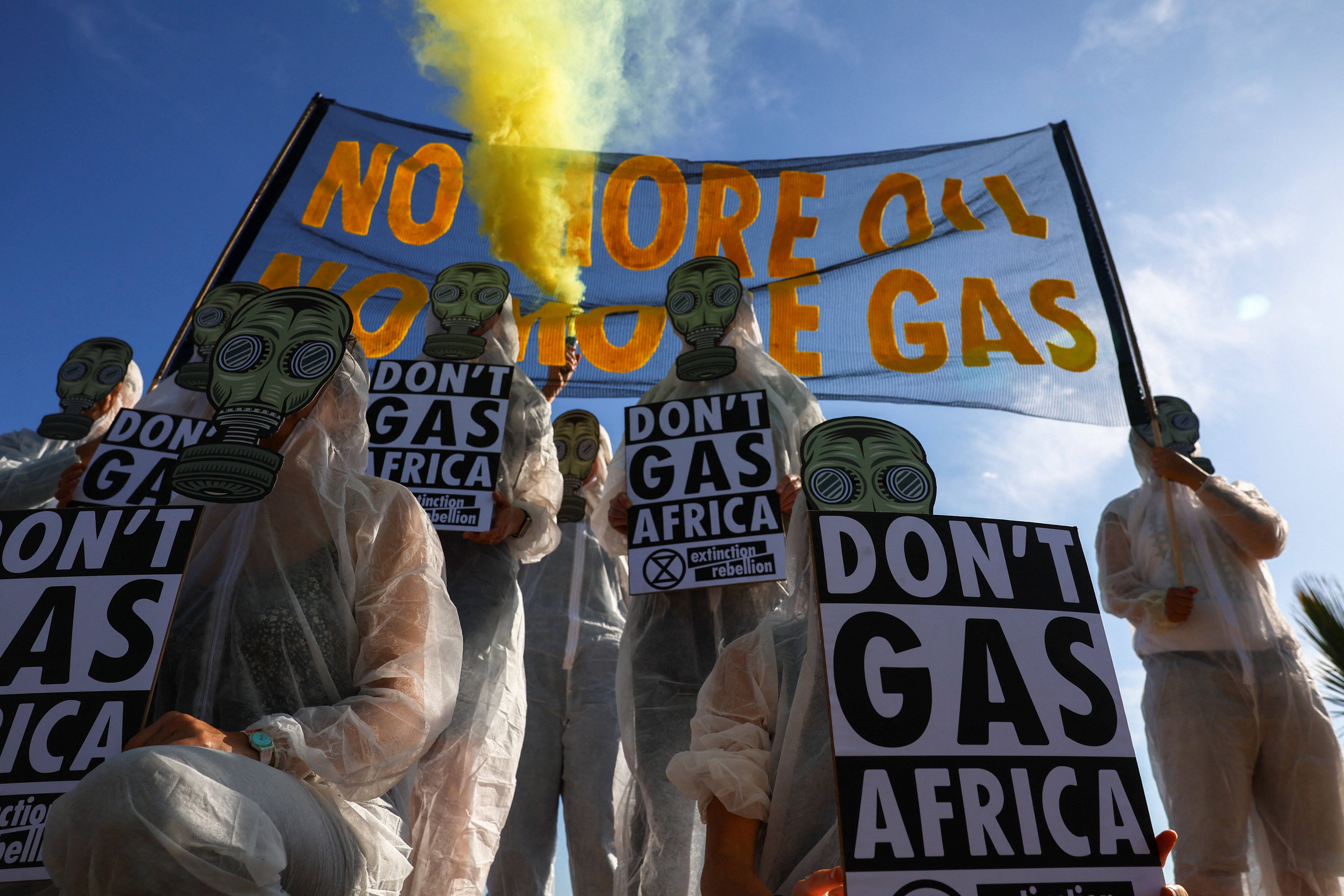Africa has all the sun and wind it needs to be a clean energy pioneer – but it needs help
Cop27: Africa, the world’s youngest continent, is on the cusp of sweeping economic development. But that development must be powered by renewables, writes Mohamed Adow


Your support helps us to tell the story
From reproductive rights to climate change to Big Tech, The Independent is on the ground when the story is developing. Whether it's investigating the financials of Elon Musk's pro-Trump PAC or producing our latest documentary, 'The A Word', which shines a light on the American women fighting for reproductive rights, we know how important it is to parse out the facts from the messaging.
At such a critical moment in US history, we need reporters on the ground. Your donation allows us to keep sending journalists to speak to both sides of the story.
The Independent is trusted by Americans across the entire political spectrum. And unlike many other quality news outlets, we choose not to lock Americans out of our reporting and analysis with paywalls. We believe quality journalism should be available to everyone, paid for by those who can afford it.
Your support makes all the difference.For many Africans, climate change is not a “scientific” issue or something only of interest to environment reporters. And it’s not about polar bears. For us it’s an existential threat to our way of life; one which is already taking our loved ones and our livelihoods. So, it feels good to have the UN climate summit, Cop27, back on African soil this month, where the climate crisis is a true matter of life or death.
The great tragedy of the climate crisis is that it is those least responsible that are suffering the consequences first and worst. It will come for everyone eventually, and we’re already seeing those impacts in the UK and other global North countries. But for many of us in Africa, it’s now a daily reality, one which we didn’t create.
That is why Cop27 needs to finally put the interests of those actually suffering the most at the top of the agenda.
Last year at Cop26 in Glasgow, the then prime minister Boris Johnson summarised the key areas for the meeting as: “cash, coal, cars and trees”. Well, sadly that failed at the first hurdle, with rich nations arriving at the meeting to admit that the $100bn in climate finance they had promised to deliver since 2009 would not be paid. That, despite the original due date being 2020.
This cash is not a mere handout. It is recognition that the rich world got rich by burning fossil fuels, destroying the climate, imperilling our future and inflicting suffering on some of the poorest people in the world. The money is needed to help these people to adapt to this distorted climate reality and aid developing countries to decarbonise – because the rich world has already used up the global carbon budget, leaving nothing for anyone else.
That is why at Cop27 we need to return to Boris’s first bullet point – cash – and ensure what is owed gets paid. One hundred billion dollars might sound like a lot but it’s actually a drop in the ocean. It’s to be paid by all rich countries combined. In comparison, the UK alone is spending more than that on the HS2 railway line.
We also need to see progress made to actually compensate those who have suffered such climate losses that they cannot adapt to them. In the world of international climate negotiations, this is called “loss and damage” and involves creating a fund to pay for the climate impacts that go beyond adaptation.
If your home is lost to sea level rise, or your farm turns to desert because of rising temperatures, you cannot simply “adapt” to those conditions. Rich countries have been engaging in talks about a loss and damage fund since 2013 – but every time we’re close to actually establishing a fund to do something to help people, they block it. The time has come for this to stop. At Cop27 we need to see real progress.
Thirdly, we need to see emissions begin to fall. Despite all the rhetoric from world leaders about a climate emergency, their enthusiasm for renewable energy or their sorrow for people dying in storms or starving to death in droughts, emissions continue to rise. Warm words stopped being of any use many years ago. We need urgent and drastic emissions reductions if we’re to get on track towards a safe and secure planet.
To keep up to speed with all the latest opinions and comment sign up to our free weekly Voices Dispatches newsletter by clicking here
The war in Ukraine has sharpened minds and made many realise that relying on fossil fuels controlled by petro-dictators is pure folly. The fact it took Vladimir Putin to attack Ukraine for Europe to get off fossil fuels – and not the suffering of Africans over many years – is pretty shameful from where I’m standing.
But at least we now have an opportunity to finally shake off our destructive dirty energy addiction and invest the big money needed into renewable energy all around the world – including in developing countries that need that energy investment the most.
Africa, the world’s youngest continent, is on the cusp of sweeping economic development. But that development must be powered by renewables if we’re going to keep the global temperature rise below 1.5C. Africa has all the sun and wind it needs to be a clean energy pioneer and tackle some of its great problems. But it needs the investment and technology to harness it.
All this can happen at Cop27. The science is clear, the technology is available, the money exists. We just need to see the political will to bring it together for our common good.
Mohamed Adow is the founder and director of Power Shift Africa, a non-governmental organisation and think tank
Join our commenting forum
Join thought-provoking conversations, follow other Independent readers and see their replies
Comments